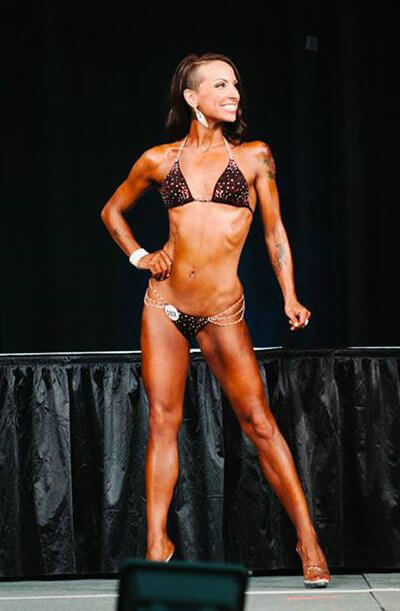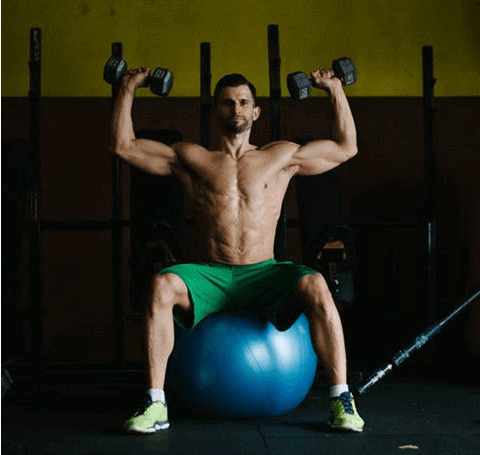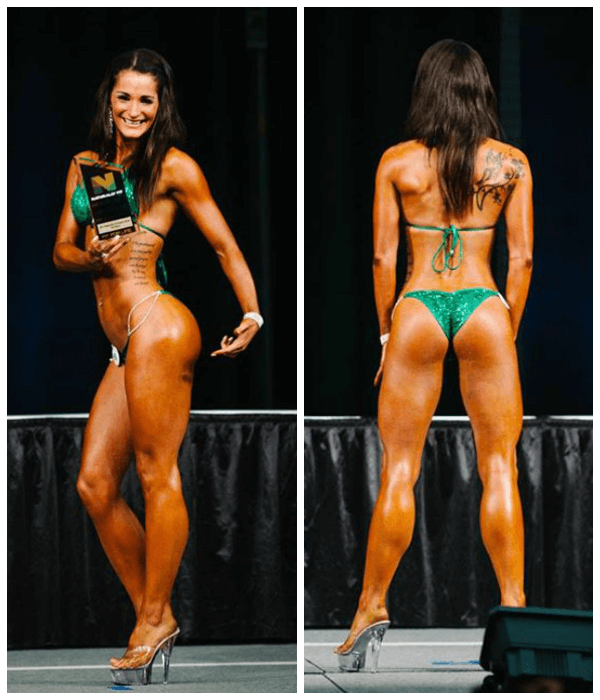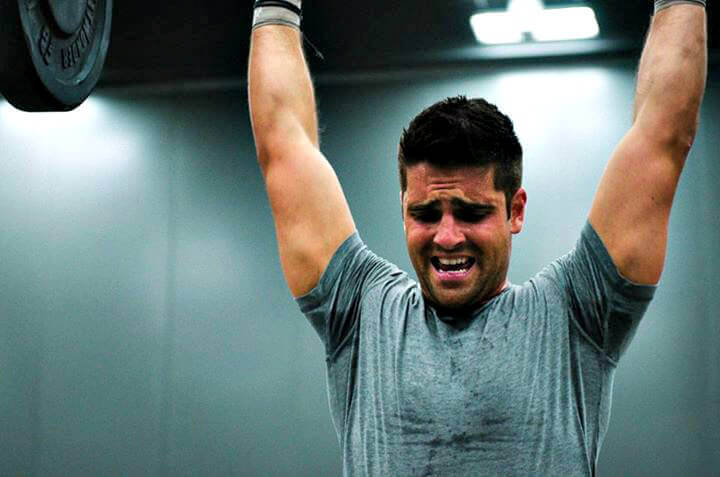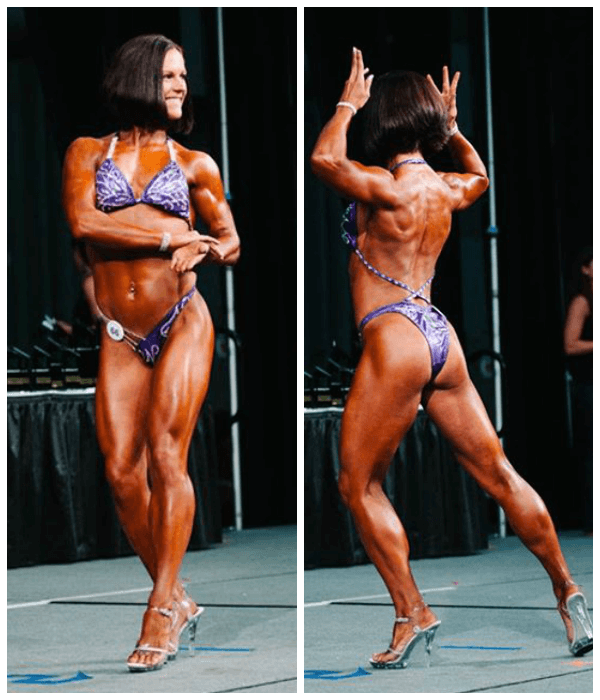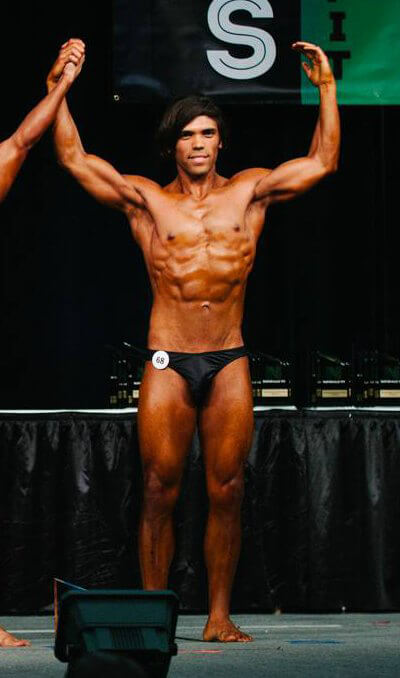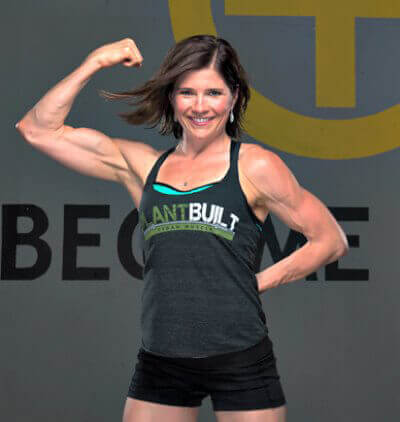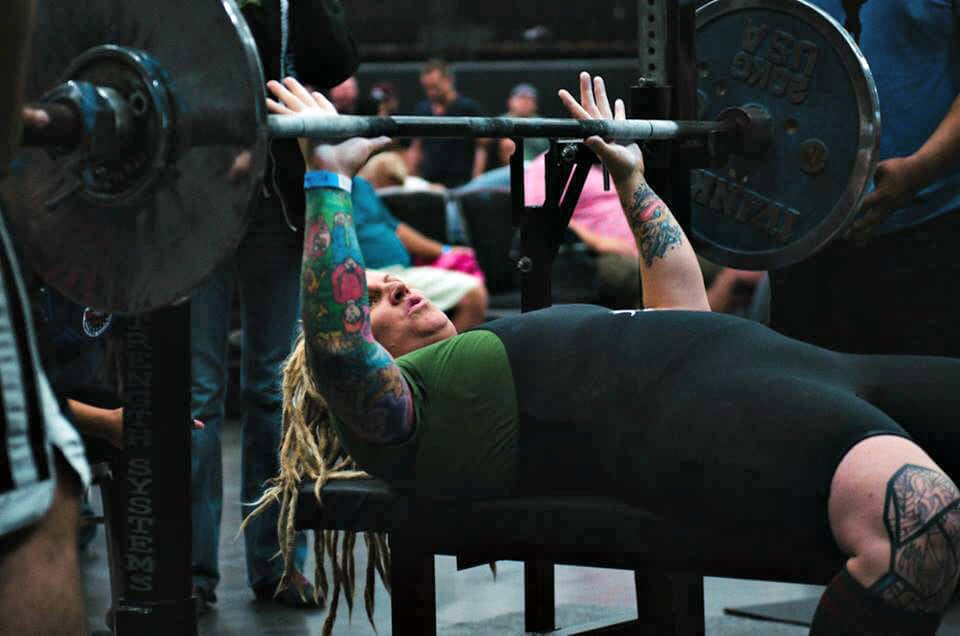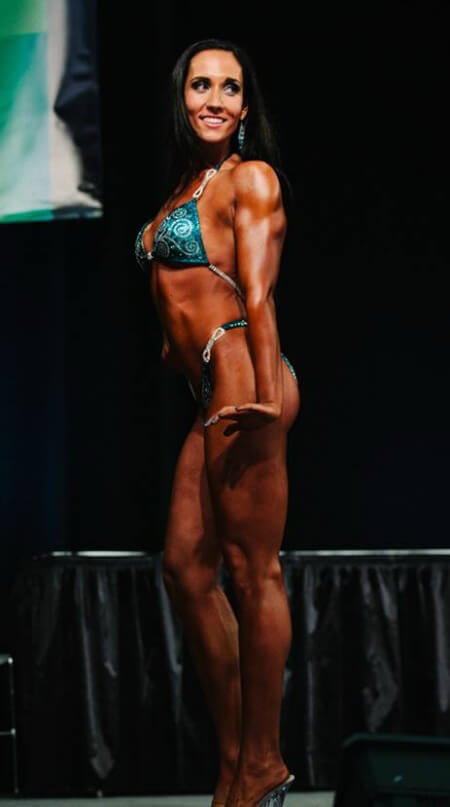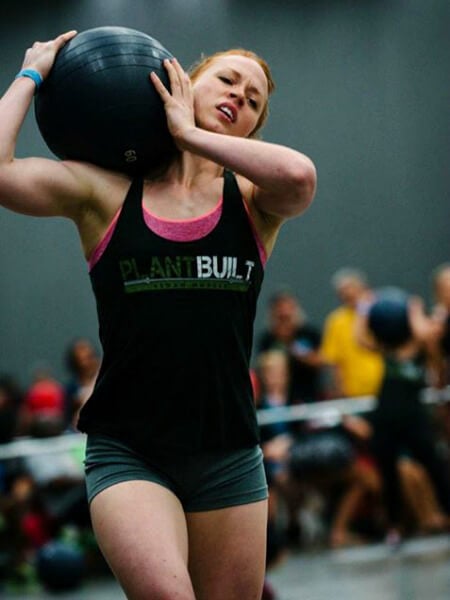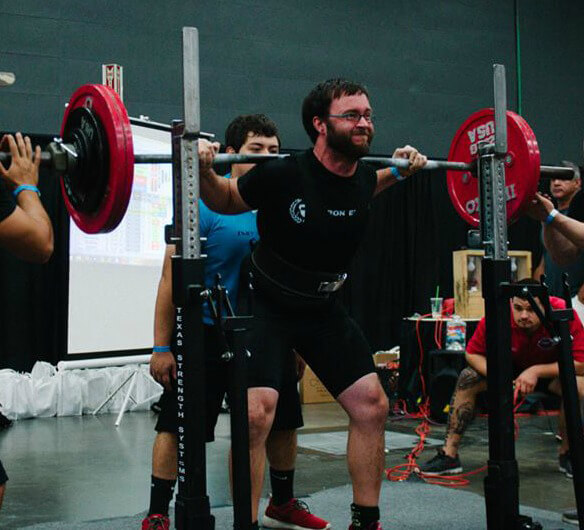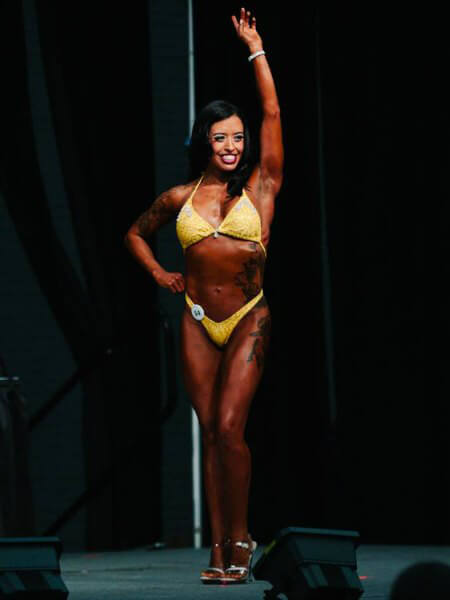- Joined
- Sep 7, 2008
- Messages
- 9,230
- Points
- 63
I'm not a vegetarian, but am in favour of it as killing of animals is not a pretty picture, and I love the taste of meat. However, there may be some out there who are thinking of going vegetarian but are concerned about their protein intake should they make that decision. Following is an article that focuses on this topic. Hope it helps your decision.
Cheers!
http://www.theglobeandmail.com/life...muscle-and-compete-in-sports/article20945720/
Can vegan athletes still build muscle and compete in sports?
Leslie Beck
Special to The Globe and Mail
Published Monday, Oct. 06 2014, 2:47 PM EDT
THE QUESTION
I’ve been reading about the overwhelmingly positive long-term health effects of veganism and am trying to make the switch, but I have stalwarts in my family who think meat protein is the only way to go for building muscle and top athletic performance. Can you be vegan and still build muscle and compete in sports? If so, what are the keys to success?
THE ANSWER
A plant-based diet is undeniably good for your health. Research shows it has the potential to stave off high blood pressure, high cholesterol , heart disease, Type 2 diabetes, obesity and certain cancers. Unlike animal foods, fruit, vegetables, legumes, nuts and whole grains don’t contain saturated fat or cholesterol and are naturally low in sodium. They also deliver fibre and thousands of phytochemicals, disease-fighting compounds that don’t exist in animal foods.
But if you’re serious about exercise, you might wonder if a vegan diet can provide enough protein – and the right kind – to fuel your workouts. Vegans avoid eating all animal foods including meat, poultry, fish, eggs and dairy. Instead, they rely on plant food such as beans, lentils, tofu, tempeh, soymilk, nuts and seeds to get the bulk of their protein. Vegetables and grains – especially quinoa, kamut, millet and amaranth – provide some protein, too.
Many people think that a meat-free diet won’t offer enough protein to meet an athlete’s increased requirement. Extra protein supplies amino acids (building blocks of protein) needed to repair muscle damage that occurs during exercise and to support muscle building .
The good news: A vegan diet can easily provide all the protein your body needs for top athletic performance. That’s certainly the case for many professional athletes including Carl Lewis, Mike Tyson and Brendan Brazier, former Ironman triathlete and Canadian Ultra Marathon (50 km) champion.
Protein-intake recommendations for non-vegetarian athletes range from 1.2 to 1.7 grams of protein per kilogram of body weight a day. That’s twice as much protein – or more – than sedentary people need each day (0.8 grams per kilogram body weight). A 175-pound (79.5 kg) male athlete, then, needs 95 to 135 grams of protein each day. (One cup of Greek yogurt, four egg whites and a six-ounce serving of chicken, fish or meat at lunch and dinner provide a total of 127 grams of protein.)
Because plant proteins are less well digested than animal proteins, vegans need to boost their intake by about 10 per cent. Not a huge increase. If you eat a vegan diet and work out regularly, that means you need 1.3 to 1.8 grams of protein for every kilogram you weigh, or 103 to 143 grams for a 175-pound male. That might sound like a lot of protein, but it’s entirely possible to get it from a vegan diet (see chart). The key is including good sources of vegetarian protein at all meals and snacks.
In order for protein to support muscle health, it’s important to meet daily calorie requirements. If your calorie intake is too low, some of the protein in your diet will be used for energy purposes rather than to build or repair muscle tissue. If you do make the switch to a vegan diet, monitor your weight. If you find you’re losing weight, you may not be eating enough calories to meet the demands of your exercise training.
There’s also a concern about protein quality. A full range of essential amino acids – amino acids the body can’t make on its own and therefore must come from food – is needed for optimal muscle function. Animal proteins contain all essential amino acids in sufficient amounts to support muscle building and repair. Plant proteins don’t; some are low in one or more essential amino acids and others may be lacking one. As long as you eat a variety of vegetarian protein foods each day, you’ll get the correct balance of amino acids needed for protein building.
Protein isn’t the only nutrient that’s needed for top athletic performance. Iron, which is less well absorbed in plant foods than it is in meat, helps red blood cells shuttle oxygen to working muscles. Include in your daily diet such iron-rich plant foods as lentils, chickpeas, soybeans, pumpkin seeds, cooked spinach, cooked collard greens, fortified breakfast cereals and blackstrap molasses.
Vitamin B12, found only in animal foods, is essential for making red blood cells and proper nerve function. You’ll find B12 in fortified foods including non-dairy milks (soy, rice, almond, hemp), soy burgers and breakfast cereals as well as nutritional yeast. To ensure you get enough B12, take a multivitamin or separate B12 supplement.
Vitamin D is important too. An optimal vitamin D level in the body is associated with improved muscle strength, exercise capacity and physical performance. In the fall and winter, when the sun isn’t strong enough to produce vitamin D in our skin, adults should take a daily vitamin D supplement supplying 1,000 IU (international units). (Osteoporosis Canada recommends vitamin D year-round.) Some people may need more vitamin D to maintain a sufficient blood level.
***
Plant proteins are digested less well than animal proteins, so athletes who follow a vegan diet require a little more than meat eaters – about 1.3 to 1.8 grams of protein per kilogram of body weight. A 175-pound (79.5 kg) marathoner, for example, needs 103 to 145 grams of protein each day. Here’s how it can be done.
Breakfast
Oatmeal, cooked, 2 cups: 12g
Hemp hearts, 2 tbsp: 6.6g
Blueberries, 3/4 cup: 0.7g
Soy beverage, unflavoured, 1 cup: 8g
1 slice toast with 1 tbsp almond butter: 7.1g
Tea: 0g
Breakfast total: 34.4g
Snack
1 apple: 0.3g
15 almonds: 4g
Snack total: 4.3g
Lunch
Large green salad with chickpeas
2 cups mixed greens: 0.8g
1/2 cup sliced mushrooms: 1.1g
1/2 cup cherry tomatoes: 0.8g
1/2 yellow pepper, chopped: 0.6g
1 cup chickpeas: 15g
Whole-grain bagel, 1 medium: 11g
Hummus, 4 tbsp: 4.4g
Water: 0g
Lunch total: 33.7g
Snack
Smoothie
1 cup almond milk: 1g
1 banana: 1.5g
1/2 cup frozen raspberries: 0.7g
1 scoop brown rice protein powder: 16g
Snack total: 19.2g
Dinner
Tofu veggie stir-fry
Firm tofu, chopped, 1 cup: 20.5g
1 carrot: 0.7g
1/2 red pepper: 0.6g
1/2 cup broccoli florets: 1.1g
1/2 cup snow peas: 1.2g
Quinoa, cooked, 2 cups: 16g
Water: 0g
Dinner total: 40.1g
Total protein intake for the day: 131.7 grams
Cheers!
http://www.theglobeandmail.com/life...muscle-and-compete-in-sports/article20945720/
Can vegan athletes still build muscle and compete in sports?
Leslie Beck
Special to The Globe and Mail
Published Monday, Oct. 06 2014, 2:47 PM EDT
THE QUESTION
I’ve been reading about the overwhelmingly positive long-term health effects of veganism and am trying to make the switch, but I have stalwarts in my family who think meat protein is the only way to go for building muscle and top athletic performance. Can you be vegan and still build muscle and compete in sports? If so, what are the keys to success?
THE ANSWER
A plant-based diet is undeniably good for your health. Research shows it has the potential to stave off high blood pressure, high cholesterol , heart disease, Type 2 diabetes, obesity and certain cancers. Unlike animal foods, fruit, vegetables, legumes, nuts and whole grains don’t contain saturated fat or cholesterol and are naturally low in sodium. They also deliver fibre and thousands of phytochemicals, disease-fighting compounds that don’t exist in animal foods.
But if you’re serious about exercise, you might wonder if a vegan diet can provide enough protein – and the right kind – to fuel your workouts. Vegans avoid eating all animal foods including meat, poultry, fish, eggs and dairy. Instead, they rely on plant food such as beans, lentils, tofu, tempeh, soymilk, nuts and seeds to get the bulk of their protein. Vegetables and grains – especially quinoa, kamut, millet and amaranth – provide some protein, too.
Many people think that a meat-free diet won’t offer enough protein to meet an athlete’s increased requirement. Extra protein supplies amino acids (building blocks of protein) needed to repair muscle damage that occurs during exercise and to support muscle building .
The good news: A vegan diet can easily provide all the protein your body needs for top athletic performance. That’s certainly the case for many professional athletes including Carl Lewis, Mike Tyson and Brendan Brazier, former Ironman triathlete and Canadian Ultra Marathon (50 km) champion.
Protein-intake recommendations for non-vegetarian athletes range from 1.2 to 1.7 grams of protein per kilogram of body weight a day. That’s twice as much protein – or more – than sedentary people need each day (0.8 grams per kilogram body weight). A 175-pound (79.5 kg) male athlete, then, needs 95 to 135 grams of protein each day. (One cup of Greek yogurt, four egg whites and a six-ounce serving of chicken, fish or meat at lunch and dinner provide a total of 127 grams of protein.)
Because plant proteins are less well digested than animal proteins, vegans need to boost their intake by about 10 per cent. Not a huge increase. If you eat a vegan diet and work out regularly, that means you need 1.3 to 1.8 grams of protein for every kilogram you weigh, or 103 to 143 grams for a 175-pound male. That might sound like a lot of protein, but it’s entirely possible to get it from a vegan diet (see chart). The key is including good sources of vegetarian protein at all meals and snacks.
In order for protein to support muscle health, it’s important to meet daily calorie requirements. If your calorie intake is too low, some of the protein in your diet will be used for energy purposes rather than to build or repair muscle tissue. If you do make the switch to a vegan diet, monitor your weight. If you find you’re losing weight, you may not be eating enough calories to meet the demands of your exercise training.
There’s also a concern about protein quality. A full range of essential amino acids – amino acids the body can’t make on its own and therefore must come from food – is needed for optimal muscle function. Animal proteins contain all essential amino acids in sufficient amounts to support muscle building and repair. Plant proteins don’t; some are low in one or more essential amino acids and others may be lacking one. As long as you eat a variety of vegetarian protein foods each day, you’ll get the correct balance of amino acids needed for protein building.
Protein isn’t the only nutrient that’s needed for top athletic performance. Iron, which is less well absorbed in plant foods than it is in meat, helps red blood cells shuttle oxygen to working muscles. Include in your daily diet such iron-rich plant foods as lentils, chickpeas, soybeans, pumpkin seeds, cooked spinach, cooked collard greens, fortified breakfast cereals and blackstrap molasses.
Vitamin B12, found only in animal foods, is essential for making red blood cells and proper nerve function. You’ll find B12 in fortified foods including non-dairy milks (soy, rice, almond, hemp), soy burgers and breakfast cereals as well as nutritional yeast. To ensure you get enough B12, take a multivitamin or separate B12 supplement.
Vitamin D is important too. An optimal vitamin D level in the body is associated with improved muscle strength, exercise capacity and physical performance. In the fall and winter, when the sun isn’t strong enough to produce vitamin D in our skin, adults should take a daily vitamin D supplement supplying 1,000 IU (international units). (Osteoporosis Canada recommends vitamin D year-round.) Some people may need more vitamin D to maintain a sufficient blood level.
***
Plant proteins are digested less well than animal proteins, so athletes who follow a vegan diet require a little more than meat eaters – about 1.3 to 1.8 grams of protein per kilogram of body weight. A 175-pound (79.5 kg) marathoner, for example, needs 103 to 145 grams of protein each day. Here’s how it can be done.
Breakfast
Oatmeal, cooked, 2 cups: 12g
Hemp hearts, 2 tbsp: 6.6g
Blueberries, 3/4 cup: 0.7g
Soy beverage, unflavoured, 1 cup: 8g
1 slice toast with 1 tbsp almond butter: 7.1g
Tea: 0g
Breakfast total: 34.4g
Snack
1 apple: 0.3g
15 almonds: 4g
Snack total: 4.3g
Lunch
Large green salad with chickpeas
2 cups mixed greens: 0.8g
1/2 cup sliced mushrooms: 1.1g
1/2 cup cherry tomatoes: 0.8g
1/2 yellow pepper, chopped: 0.6g
1 cup chickpeas: 15g
Whole-grain bagel, 1 medium: 11g
Hummus, 4 tbsp: 4.4g
Water: 0g
Lunch total: 33.7g
Snack
Smoothie
1 cup almond milk: 1g
1 banana: 1.5g
1/2 cup frozen raspberries: 0.7g
1 scoop brown rice protein powder: 16g
Snack total: 19.2g
Dinner
Tofu veggie stir-fry
Firm tofu, chopped, 1 cup: 20.5g
1 carrot: 0.7g
1/2 red pepper: 0.6g
1/2 cup broccoli florets: 1.1g
1/2 cup snow peas: 1.2g
Quinoa, cooked, 2 cups: 16g
Water: 0g
Dinner total: 40.1g
Total protein intake for the day: 131.7 grams

